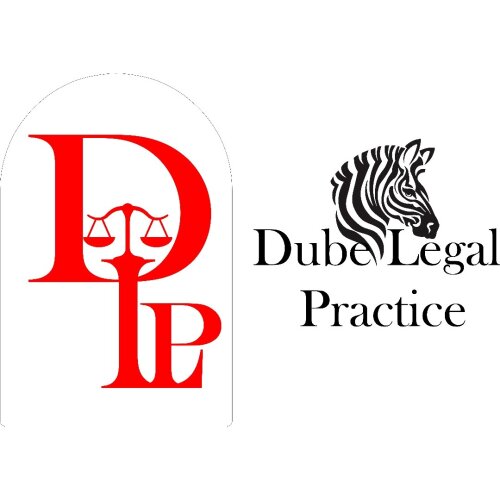Best ADR Mediation & Arbitration Lawyers in Bulawayo
Share your needs with us, get contacted by law firms.
Free. Takes 2 min.
List of the best lawyers in Bulawayo, Zimbabwe
About ADR Mediation & Arbitration Law in Bulawayo, Zimbabwe
Alternative Dispute Resolution (ADR) refers to processes such as mediation and arbitration that help parties resolve disputes outside of the traditional court system. In Bulawayo, Zimbabwe, ADR has gained recognition as an efficient and cost-effective way to handle conflicts in both commercial and personal settings. Mediation involves a neutral third party (the mediator) who helps disputing parties find a mutually acceptable resolution, while arbitration involves an arbitrator who listens to both sides and makes a binding decision. These processes are supported and regulated by Zimbabwean law and offer a practical alternative to lengthy court proceedings.
Why You May Need a Lawyer
You may require the assistance of a lawyer experienced in ADR mediation and arbitration for several reasons. Common situations include contract disputes, employment disagreements, family law matters, property issues, construction claims, and commercial conflicts. A seasoned lawyer can advise you on the most suitable ADR process, represent your interests during mediation or arbitration, help you understand the implications of settlement agreements or arbitration awards, and ensure your legal rights are protected throughout the procedure. Additionally, legal representation can be vital if the matter involves complex legal issues or significant financial stakes.
Local Laws Overview
ADR in Bulawayo, Zimbabwe is largely governed by national statutes and is supported by both the High Court and the Commercial Arbitration Centre. The Arbitration Act [Chapter 7:15] provides the main legislative framework for arbitration, setting out the procedures for the appointment of arbitrators, conduct of proceedings, and enforcement of awards. For mediation, Zimbabwean courts have increasingly encouraged parties to seek resolution through mediation before pursuing litigation, and the Mediation Rules under the High Court Rules 2021 provide structure for court-annexed mediation programs. Confidentiality is a key aspect of both mediation and arbitration, and parties are generally free to agree on procedures most suitable for their situation, subject to the applicable laws. ADR provisions can also be written into contracts to require parties to try mediation or arbitration before going to court.
Frequently Asked Questions
What is the difference between mediation and arbitration?
Mediation is a voluntary process where a neutral mediator helps parties find a mutually agreeable solution. Arbitration, on the other hand, involves an arbitrator who listens to both sides and then makes a binding decision on the dispute.
Is ADR legally recognized in Bulawayo, Zimbabwe?
Yes, both mediation and arbitration are legally recognized forms of dispute resolution under Zimbabwean law and are widely promoted by local courts and legal practitioners.
Can I enforce an arbitration award in court?
Yes, arbitration awards made in Zimbabwe are enforceable through the High Court under the provisions of the Arbitration Act.
Do I need a lawyer for mediation or arbitration?
While it is not mandatory to have a lawyer, legal representation is strongly advised to protect your interests, especially in complex or high-value disputes.
Is mediation confidential?
Yes, confidentiality is a fundamental principle in mediation. Matters discussed in mediation cannot be disclosed or used in court unless all parties agree.
What kinds of disputes can be resolved through ADR?
A wide range of disputes can be resolved, including commercial, employment, family, land, and contractual disputes.
How long does mediation or arbitration usually take?
ADR processes are generally faster than court cases. Many mediations are resolved within days or weeks, while arbitrations may take a few months, depending on the complexity.
What happens if ADR does not resolve the dispute?
If mediation fails, parties may still go to court. Arbitration usually results in a binding decision, but there are limited grounds for appeal or challenge in court.
Are ADR agreements legally binding?
Yes, settlement agreements reached through mediation can be made legally binding if properly documented. Arbitration awards are binding and enforceable in court.
Can I choose my mediator or arbitrator?
Yes, parties are usually free to agree on the choice of mediator or arbitrator or can request an appointment from a recognized institution or court if they cannot agree.
Additional Resources
- Commercial Arbitration Centre (Bulawayo): Provides facilities and lists of qualified arbitrators and mediators for commercial disputes. - High Court of Zimbabwe - Bulawayo Registry: Offers information and access to court-annexed mediation services. - Law Society of Zimbabwe: Can refer you to accredited lawyers with expertise in ADR. - Zimbabwe Institute of Arbitrators: Offers training, accreditation, and a list of practicing ADR professionals. - Legal Aid Directorate: Offers assistance for those who cannot afford private legal fees in some cases.
Next Steps
If you are considering ADR mediation or arbitration in Bulawayo, Zimbabwe, begin by assessing the nature of your dispute and deciding whether you would benefit from mediation, arbitration, or another form of ADR. Consult with a qualified lawyer who specializes in ADR to receive tailored advice on the best way forward. Together, you can review your contract for ADR clauses, discuss your goals, and understand the potential outcomes. Choose a reputable mediator or arbitrator, and prepare all relevant documents. If your case involves court-annexed mediation, inquire at the High Court registry for next steps. Remember, legal counsel can make a significant difference in protecting your rights and achieving a favourable resolution.
Lawzana helps you find the best lawyers and law firms in Bulawayo through a curated and pre-screened list of qualified legal professionals. Our platform offers rankings and detailed profiles of attorneys and law firms, allowing you to compare based on practice areas, including ADR Mediation & Arbitration , experience, and client feedback.
Each profile includes a description of the firm's areas of practice, client reviews, team members and partners, year of establishment, spoken languages, office locations, contact information, social media presence, and any published articles or resources. Most firms on our platform speak English and are experienced in both local and international legal matters.
Get a quote from top-rated law firms in Bulawayo, Zimbabwe — quickly, securely, and without unnecessary hassle.
Disclaimer:
The information provided on this page is for general informational purposes only and does not constitute legal advice. While we strive to ensure the accuracy and relevance of the content, legal information may change over time, and interpretations of the law can vary. You should always consult with a qualified legal professional for advice specific to your situation.
We disclaim all liability for actions taken or not taken based on the content of this page. If you believe any information is incorrect or outdated, please contact us, and we will review and update it where appropriate.











